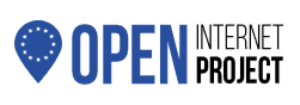New “Open Internet Project” Seeks To Derail Google-EU Antitrust Settlement
Frustrated by what it sees as the European Commission’s capitulation to Google, a new group called the “Open Internet Project” (OIP) seeks to derail the current Google antitrust settlement or create a new investigation. A mixture of French and German publishers and companies are behind the initiative. The OIP claims to represent hundreds more European […]
 Frustrated by what it sees as the European Commission’s capitulation to Google, a new group called the “Open Internet Project” (OIP) seeks to derail the current Google antitrust settlement or create a new investigation. A mixture of French and German publishers and companies are behind the initiative.
Frustrated by what it sees as the European Commission’s capitulation to Google, a new group called the “Open Internet Project” (OIP) seeks to derail the current Google antitrust settlement or create a new investigation. A mixture of French and German publishers and companies are behind the initiative.
The OIP claims to represent hundreds more European internet companies which argue, in essence, Google is too powerful and too much in control of what happens online.
The group submitted a new competition complaint to the European Commission reasserting or reviving most of the complaints previously leveled against Google. Among them are the following:
- Google’s overwhelming dominance … have made it quasi-impossible for other companies to compete with Google
- Data–whose importance is paramount for digital competition (“the new currency”)–are used illegally by Google to strengthen its position
- Google … promotes its own services and demotes rivals through unannounced and unjustified algorithmic changes that primarily affect competing website but not its own sites
There are also complaints surrounding AdWords and other areas. The claims and complaint can be accessed on the group’s site.
The group wants to see fines imposed on Google. It also wants to see establishment of a “review mechanism for algorithm changes that demote rivals,” forced Google data licensing to competitors and/or potential breakup of the company.
This final, “structural” remedy was also offered as a possibility to address Google’s market power by a German government minister. He argued that Google and other large internet companies pose a threat to the “future of democracy” and, in particular, “500 million people in Europe.”
While the EU antitrust settlement hasn’t been formally completed, everything coming out of the European Commission suggests that it’s a done deal. This new OIP complaint and broader PR initiative (including a conference) are designed to put the brakes on that settlement, which would probably preclude many of the claims being made again here.
Vocal criticism coming from the OIP and from various European government officials will put new pressure on the European Commission. It’s not clear whether that will be enough to force reconsideration of the settlement.
Some in Europe want to see Google “punished” and some want to see it “structurally” restrained (read: broken up). That’s not likely to happen. But this kind of aggressive talk is growing louder and more common among some non-US government officials.
Contributing authors are invited to create content for Search Engine Land and are chosen for their expertise and contribution to the search community. Our contributors work under the oversight of the editorial staff and contributions are checked for quality and relevance to our readers. The opinions they express are their own.
Related stories